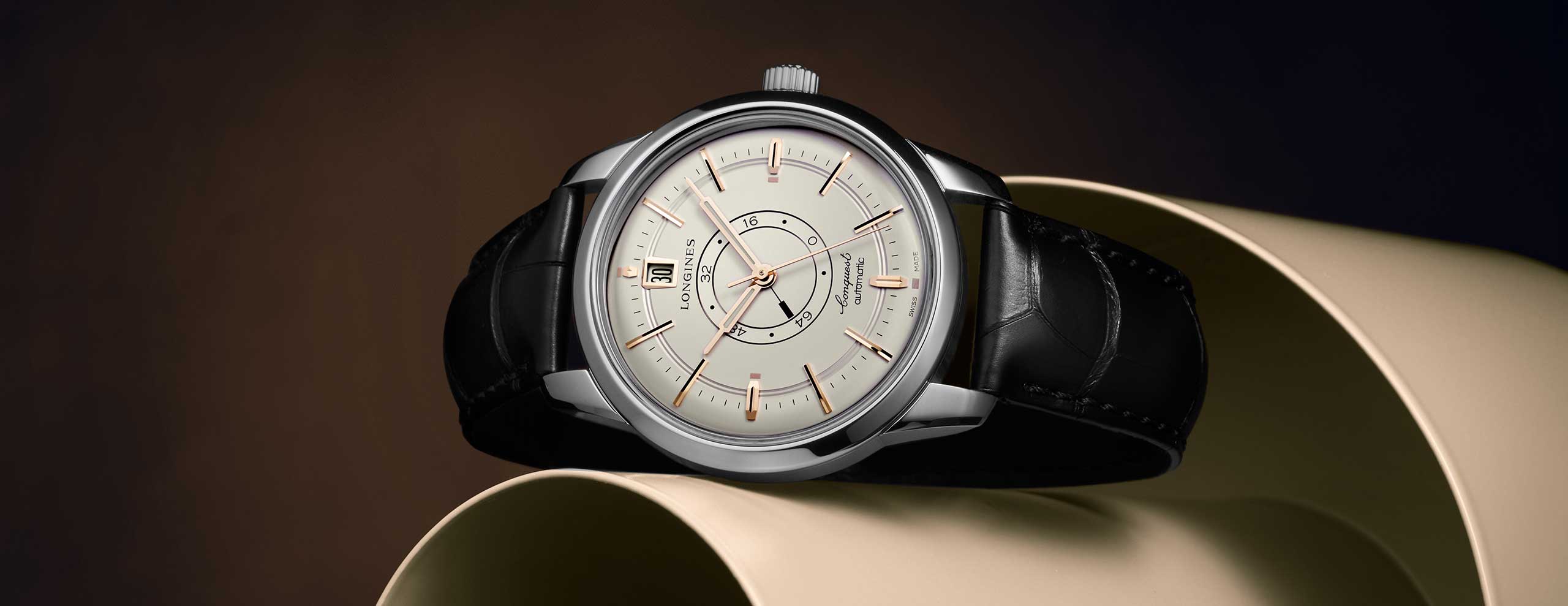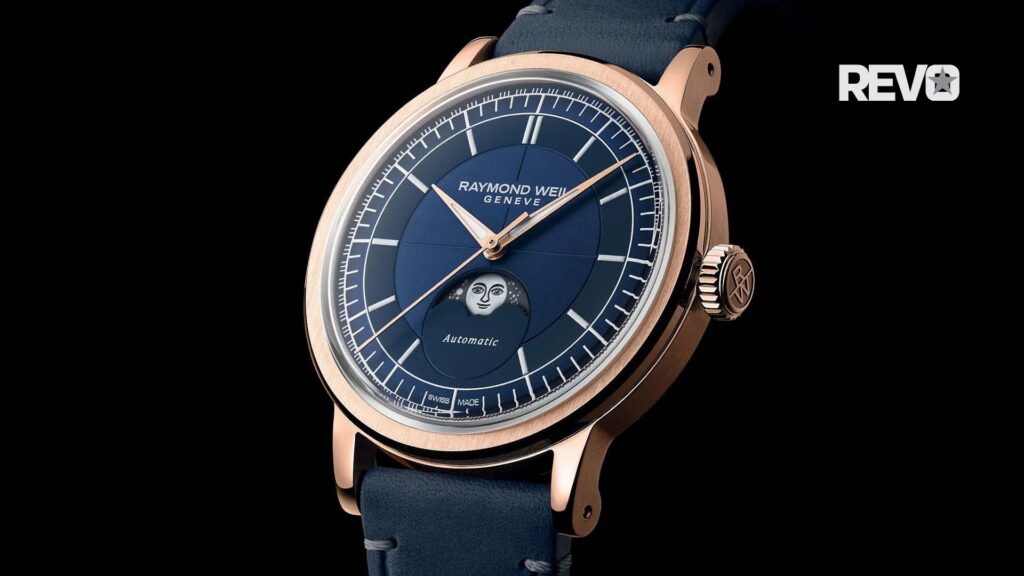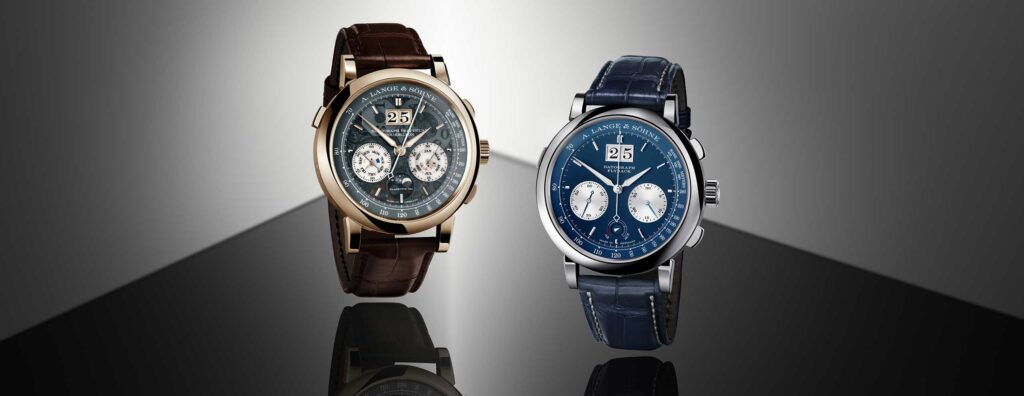Celebrating 70 years of the Longines Conquest collection, the Conquest Heritage Central Power Reserve watch offers a window to its history and a charming rendition of a vintage gem.
In the early 1950s, sport watches as we know them today were relatively new. On the wrists of mountaineers and adventurers were often what the modern eye would see as dressy affairs—simple, small, conservatively styled watches that modestly told the time. But it was a decade of change.
With postwar prosperity and the popularization of activities like hiking and recreational diving came the democratization of dive and tool watches. Many watches, however, retained the handsome and conservative styling prevalent in preceding decades, but were built with tougher specifications and pragmatic features like automatic winding. We’re talking about the kind of watch you’d wear trekking the jungle and then to an elegant dinner to relate your intrepid escapades. This is the landscape into which Longines introduced the Conquest in 1954—a sporty dress watch, if you will.
Conquering the skies, the oceans, the mountains—these ideas were in the zeitgeist of the time and reflected in the Conquest name. It was the first Longines collection name to be registered with the Federal Intellectual Property office in Bern, Switzerland, and it’s emblematic of the brand today. Though many modern Longines Conquest watches are sporty and rugged, the collection’s 70th anniversary in 2024 gives the brand a chance to remind us of its roots and evolution.
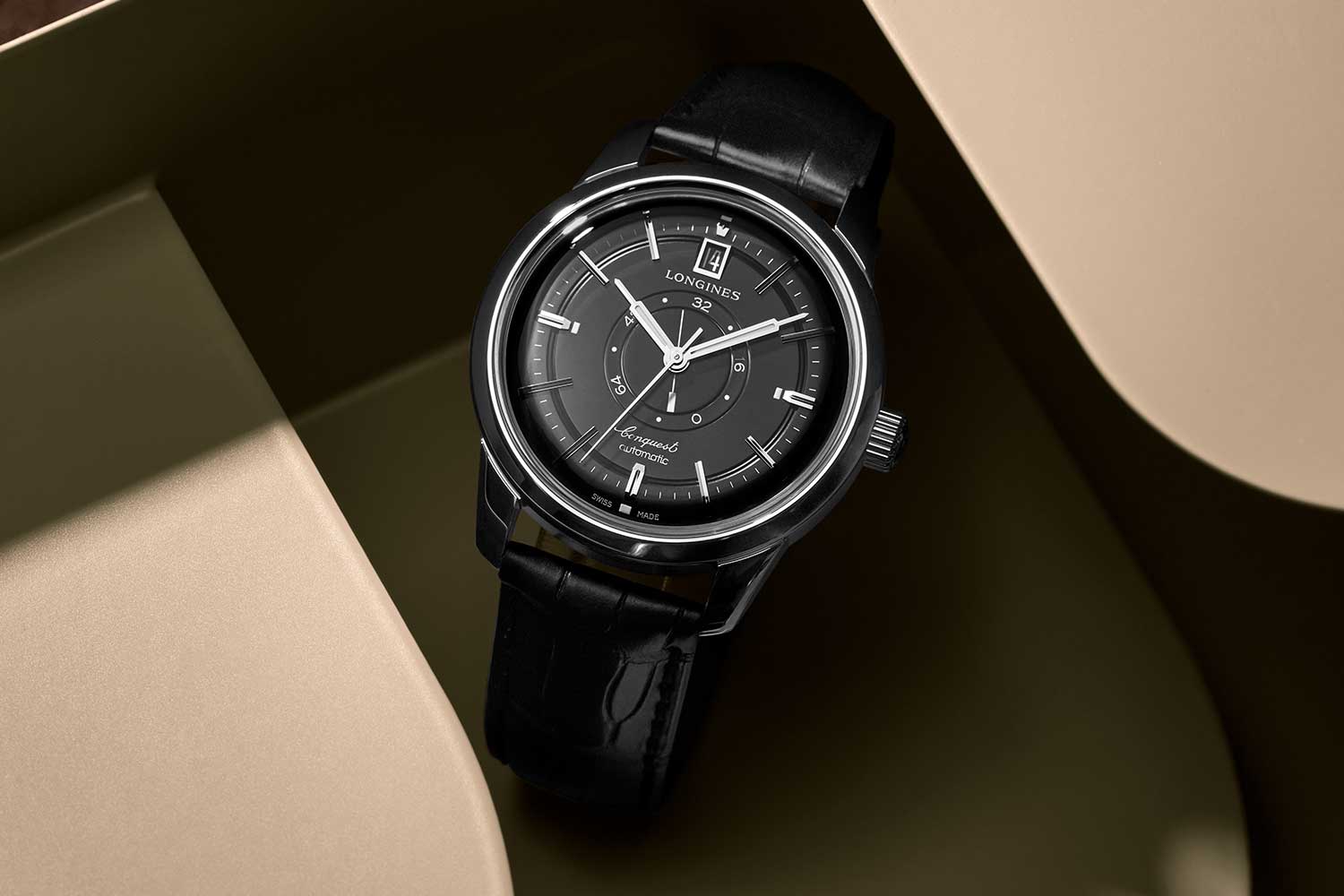
Longines Conquest Heritage Central Power Reserve
The watch that serves to highlight the occasion is
the Conquest Heritage Central Power Reserve. It harkens back to the early days of the Conquest, but takes its inspiration from a particular vintage watch with some unusual features and a striking character.
As the Conquest line turns 70, Longines itself is no less than 192 years old, tracing its founding to 1832 Saint-Imier, Switzerland, and watchmaker Auguste Agassiz. Within that deep history are a number of landmarks in sport watches’ evolution. The brand famously outfitted pioneering aviators like Amelia Earhart, Richard Byrd, Charles Lindbergh and others in the United States alone, as well as soldiers and pilots in World War II.
Such watches sometimes had special characteristics, but they were also notable for robust features that kept them reliable in demanding situations such as extreme temperatures, pressure changes and being knocked around. These developments by Longines and others led to more durable timepieces trickling down to the general consumer in what would become what we now call sport watches.
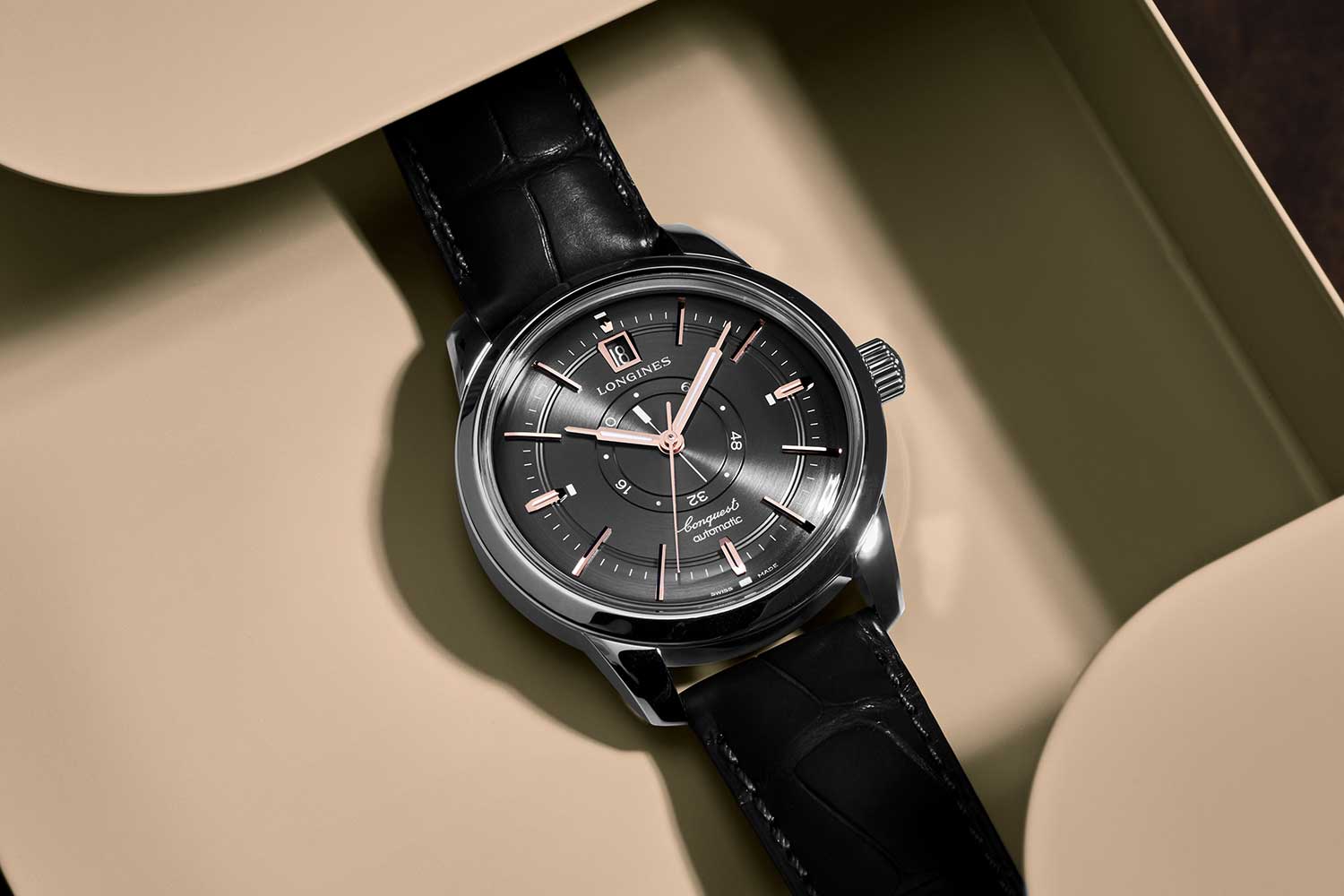
Longines Conquest Heritage Central Power Reserve
The first Conquest models were 35mm wide with casebacks featuring enamel medallions and proudly proclaiming “automatic” and “waterproof.” Despite their dauphine hands and elegantly domed dials, these might have been seen as sporty to the average consumer of the time. The Conquest line continued to expand and transform with the subsequent decades. Notably, when the brand introduced its impressively accurate V.H.P. (Very High Precision) quartz movement in 1984, it was housed in a Conquest collection watch—though one that was stylistically of its time featuring a slim, 33mm case with a two-tone finish. This shows how the collection has adapted and transformed, but also how it’s consistently been a vehicle to showcase the brand’s innovation.
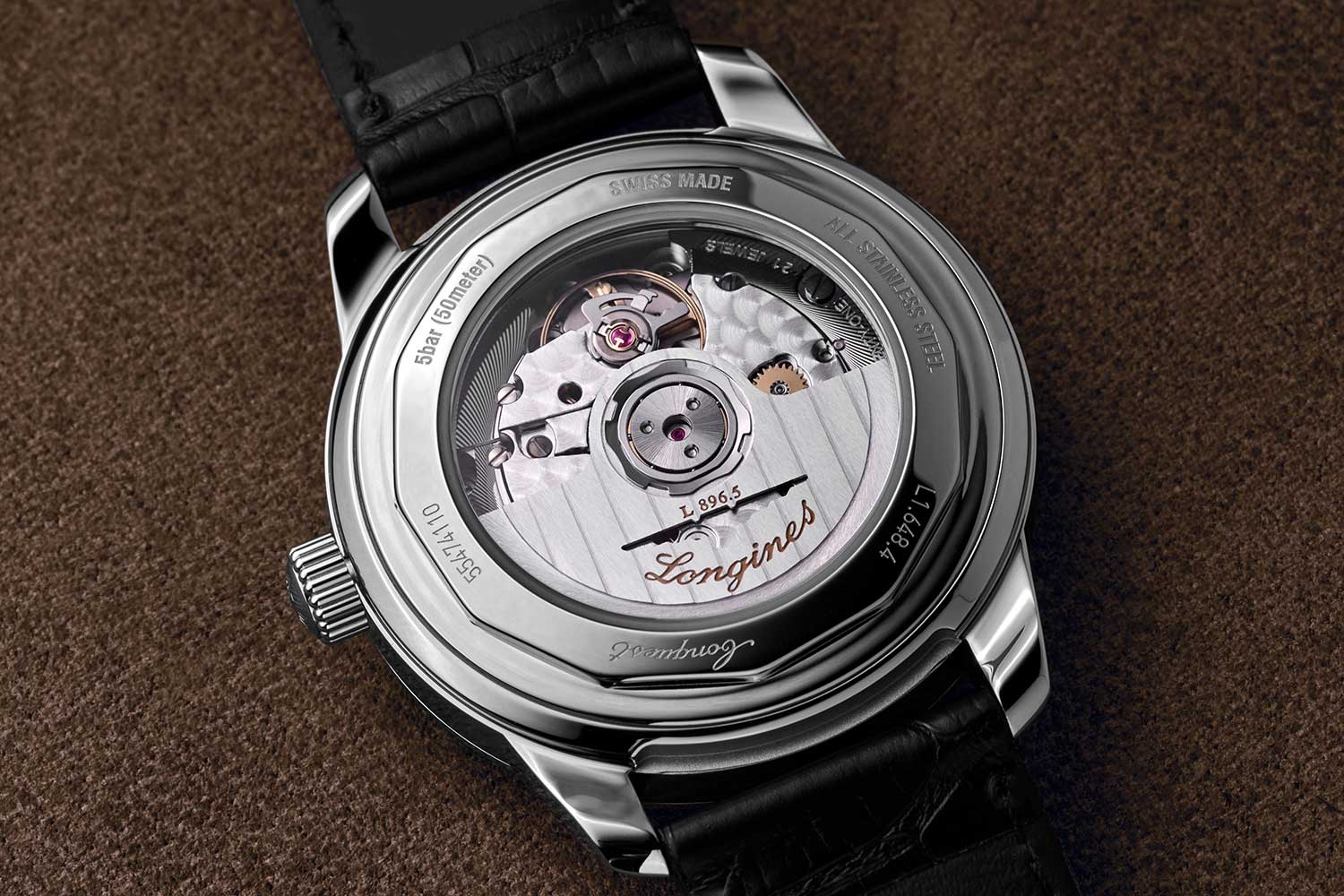
Longines Conquest Heritage Central Power Reserve
The modern Longines Conquest collection has a decidedly rugged character. With crown protectors, thick bezels, strong legibility and sturdy cases. Launched in 2007, the HydroConquest collection is an offshoot of the Conquest which expands upon its concept of tough, sporty intentions that might even go down deep under water.
Let’s step back for a moment, however, to a particular point in the Conquest’s history: 1959. The collection was still young but already branching out from its roots, and a new model introduced a look and features that would go on to fascinate vintage collectors of the future. The Conquest Central Power Reserve (ref. 9028) took the elegant look established in 1954 and added a healthy dose of functionality, complexity and interest.
Still measuring around 35mm with the same robust build and restrained styling, the Conquest Central Power Reserve was characterized by features of the Longines 292 automatic movement. As its name announces, it added a power reserve indicator but in a way that was unusual, clever and highly practical. The center of the dial made use of two discs to indicate how many hours of juice remained in the watch’s wound mainspring. The outer disc carried the scale, while the inner disc had a line (with one fatter end) that indicates the power reserve’s current reading.
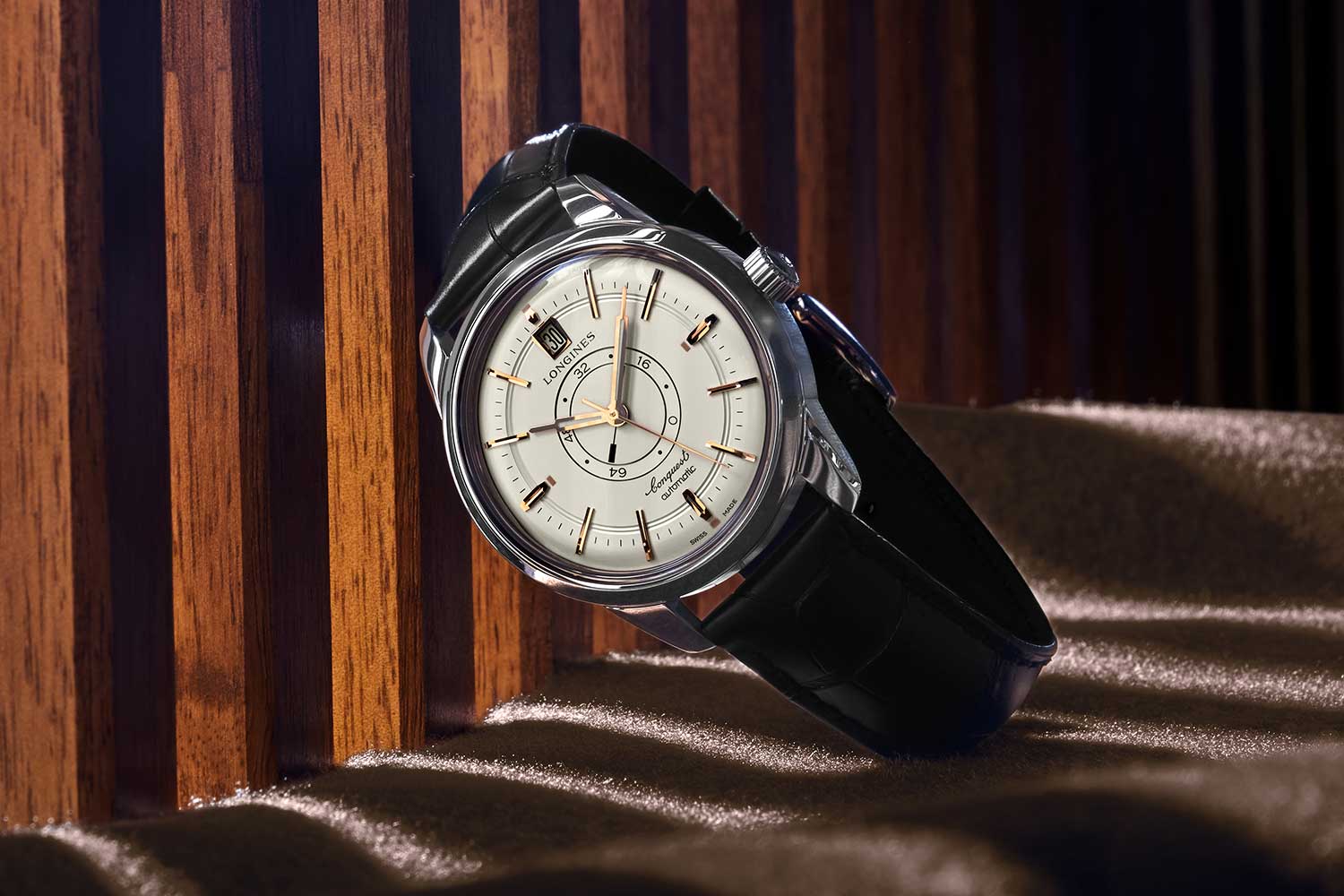
Longines Conquest Heritage Central Power Reserve
The Conquest Heritage Central Power Reserve for 2024 is, of course, a reinterpretation of that 1959 model. Side by side with the vintage watch, its overall design stays very true to the original, but its comparatively beefed-up 38mm diameter makes it a lot more modern. As the central power reserve indicator is an uncommon feature, Longines worked with its sister brand ETA to recreate the complication and developed the L896.5 movement. Visible through the caseback, its silicon balance spring helps it achieve magnetic resistance ten times that of the ISO 764 standard.
The result is a watch that offers a unique take on an old complication. Every watch has a power reserve, but not every watch has a power reserve indicator. You knew that. Powered by wound springs, mechanical watches typically have a couple to a few days of juice before needing to be wound again, and a power reserve lets you know exactly how much—usually in terms of hours. The Longines Conquest Heritage Central Power Reserve offers up to a healthy 72 hours of runtime, and the wearer can easily reference how much is left. It’s eminently practical information to have at a glance.
Granted, this feature was more critical in past decades. This is the reason you find the first power reserve indicators typically on the dial of marine chronometers on ships—to assure that this quintessential navigation tool never stopped working. Some collectors have argued that a power reserve indicator is less important on automatic watches, as the mainspring stays wound more easily with the movement of the wearer’s wrist. But anyone with a desk job or, perhaps, multiple watches in their collection will attest to its usefulness. Not only does it help prevent the watch from running down and stopping, but it helps keep it fully wound and that’s when chronometry is at its best.
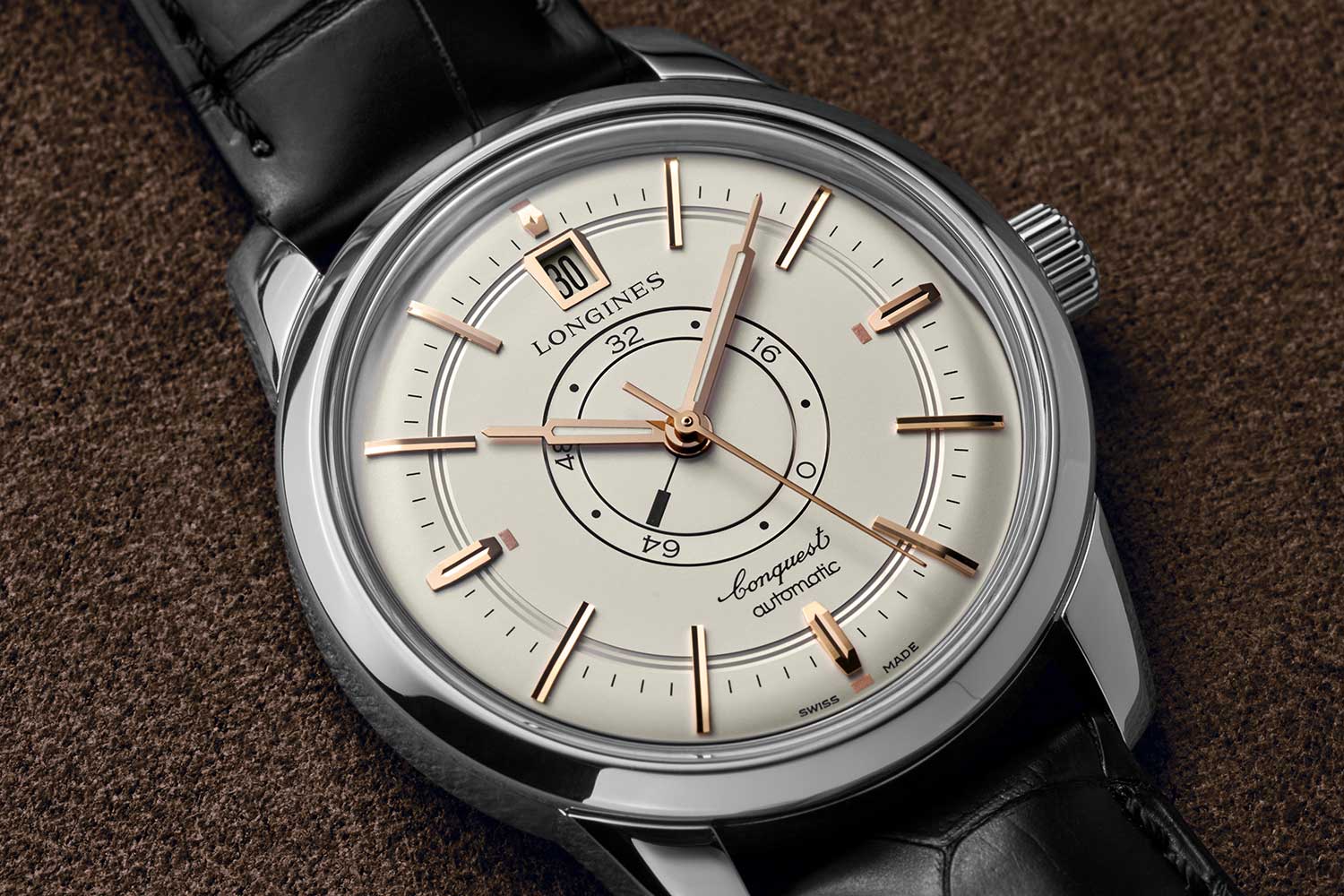
Longines Conquest Heritage Central Power Reserve
The watchmakers at Longines rethought this function from both a technical and aesthetic point of view: the traditional hand gives way to rotating inner disks—remember that the rotating inner disk technology was introduced by Longines in 1927 with the Second-Setting Watch. Although this disc could not stop the seconds hand, it enabled pilots and navigators to synchronize the seconds for radio communication purposes.
Another reason power reserve indicators can be polarizing: design. And this is where Longines’ approach stands out most. The vast majority of watches with this feature display it on a little fan-shaped scale which typically ends up a prominent feature on the dial and often jettisons the idea of symmetry completely. On a disc at the center of the dial, however, Longines takes this often disruptive feature and integrates it in a remarkably harmonious and compelling way. Balance and symmetry are maintained, and the dial immediately becomes more visually interesting. No brand had ever presented the power reserve functionality in this form.
Longines’ solution also has an interesting quirk that provides a touch of charm. The power reserve indicator consists of two discs: one at the center which carries the indicator as a line, and the outer disc which carries the scale itself. You can wind the watch manually and watch the outer disc turn (a moment of quiet fun for owners). When the power reserve is full, the outer ring’s dot past “64” will reach the central disc’s indicator, meaning it’ll keep ticking for up to 72 hours without further winding. If you keep winding the watch past its maximum, however, the central disc will turn along with it.
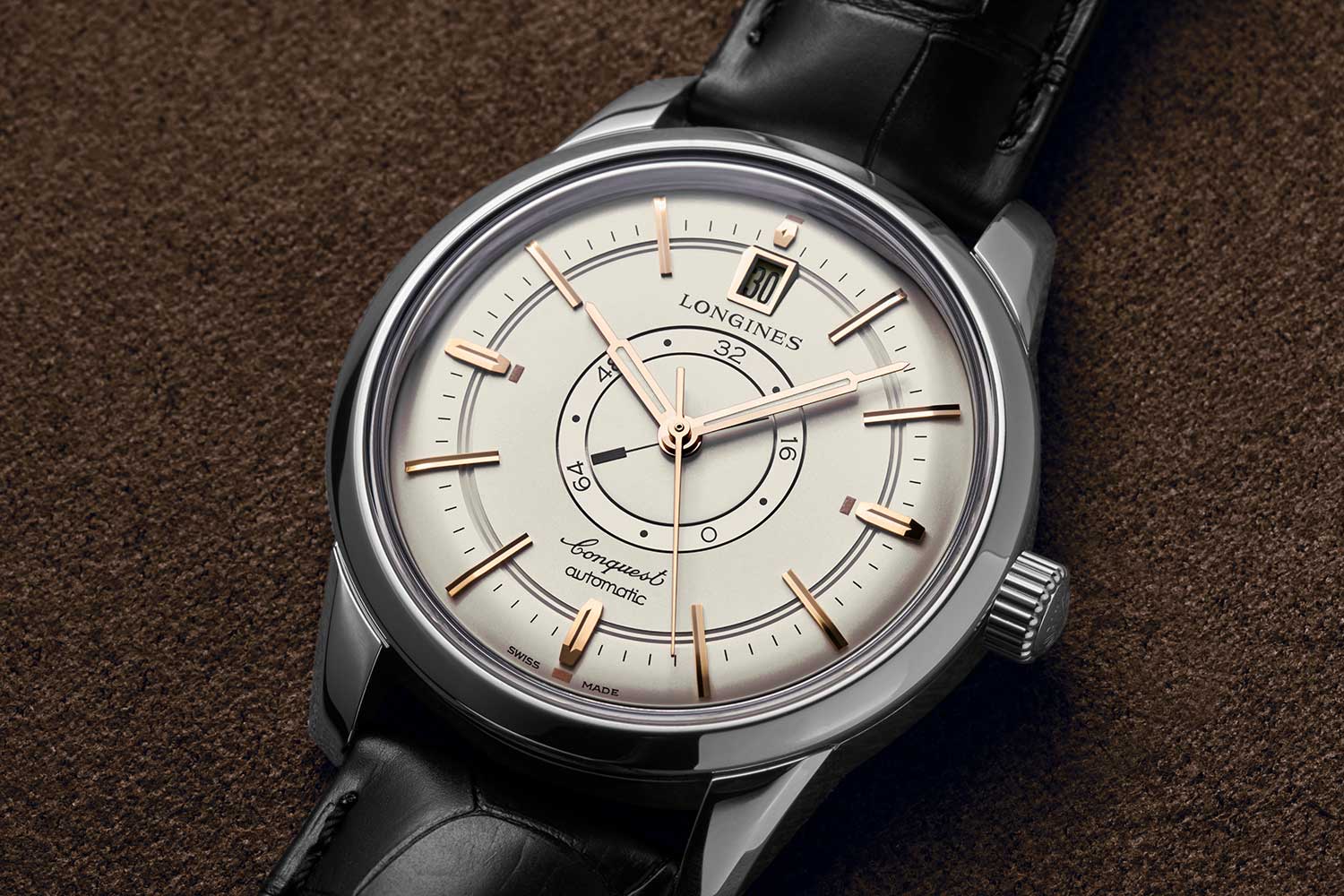
Longines Conquest Heritage Central Power Reserve
There’s no need to worry about overwinding, and the wearer can set the central disc’s indicator wherever he or she prefers. This means you can have some control over the look of your watch face and its symmetry. For watch enthusiasts, it’s also an interesting and fun way to interact with the movement inside and to differentiate this watch from other, more traditional power reserve indicator solutions.
Though elegantly symmetrical with dressy vibes, it wouldn’t be a Longines Conquest watch without some versatility. A water resistance of up to 50 meters places it beyond the basic “splash-resistance” of most dress watches and helps the Conquest Heritage Central Power Reserve be an eminently practical watch for daily wear. Most importantly, however, it serves as a reminder of the rugged collection’s history that’s hosted Longines innovations for the last 70 years.
Longines Conquest Heritage Central Power ReserveMovement: ETA/Longines L896.5 automatic
Functions: Hours, minutes, seconds, date, power reserve indication
Case: 38mm, steel
Dial: Champagne; anthracite; black
Strap: Black or gray alligator
Price: USD 3,800
Learn more on Longines’ website now










